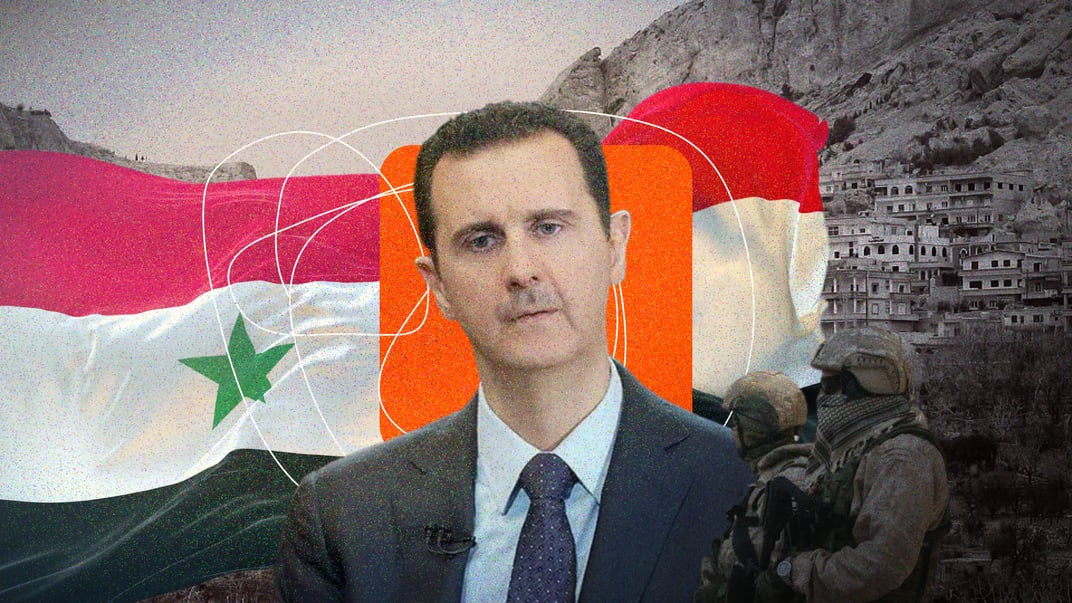Syria is engulfed in conflict once again. What prompted the rebels to launch a new offensive against Assad?

“Frozen” Conflict Melts Away
The civil war in Syria, which has persisted for over a decade, has left the country divided. A significant portion of it — primarily the south, center, and southeast — is under the control of supporters of President Bashar al-Assad.
On the other hand, rebel forces, particularly the group “Hayat Tahrir al-Sham” (HTS), are concentrated in the northwest, mainly in the Idlib province.
Other areas are controlled by Turkish forces supporting the rebels and the Kurdish-led Syrian Democratic Forces (SDF).
Since 2020, there have been no active hostilities in the country. At that time, Assad's troops attempted to attack the rebels in Idlib and shelled the positions of Turkish soldiers. This ended in a ceasefire that Turkish President Erdogan negotiated with Russian leader Vladimir Putin.
At the end of November 2024, Idlib erupted again: rebels claimed that Syrian government forces and the Russian troops supporting them conducted airstrikes on the civilian population of the province. Assad's opponents explained their offensive as a desire to allow people to return to their homes.
Reuters journalists reported that the offensive was initiated by Turkey; however, Ankara officially stated that it “aims to avoid instability in the region” and allegedly tried to use diplomatic efforts to stop the attacks on rebel-controlled areas.
In the Turkish security service, it was said that initially the rebels supposedly planned a “limited offensive.” However, as Assad's forces retreated, the HTS operation expanded. Just two days after the offensive began, on November 29, the rebels entered Syria's largest city — Aleppo. This was the first time since 2016 when the Syrian government forces and their allies expelled the rebels from there.
They also gained control over dozens of settlements in the Aleppo and Idlib provinces — the latter was completely captured, including the city of Maaret al-Numan. By the evening of November 30, they advanced south, capturing at least four more cities in the Hama province.
Panicked Retreat
On the third day of the offensive, according to government forces, “dozens” of their soldiers were killed or wounded in the battles in the Aleppo and Idlib provinces.
The government forces promised to carry out a counteroffensive after reinforcements arrived. President Assad also set the task of regaining control over Aleppo, publicly responding to the events only on the fourth day after they began.
Russia, as an ally of the Syrian government, promised to send additional forces to assist Assad’s troops within three days. It also intensified bombings in Idlib and other areas captured by the rebels. Iraq also expressed its support for Assad, announcing the dispatch of at least 300 militia members to Syria.
Meanwhile, Assad's opponents captured the airport in Aleppo where Syrian and allied forces' aircraft were stationed. Videos also surfaced online showing Russian military equipment from the base in Khan Shaykhun, which fell under rebel control.
Additionally, the rebels published videos of the toppling of a monument to Bashar al-Assad's brother in Aleppo and burning the Russian flag.
Ukrainian intelligence reported that after the retreat, Russia conducted airstrikes on Khan Shaykhun to destroy weapons that had been captured by the enemy.
Amid all this, Russia decided to replace the commander of the Syrian grouping. The previous one — Sergey Kiselyov — was dismissed. The GUR stated that the Russians suffered “significant losses,” with hundreds missing and some Russian units surrounded.
Another ally of Assad — Iran — also expressed support for his forces and promised assistance in the counteroffensive. Moreover, pro-Iranian groups from Iraq allegedly crossed the border into Syria to reinforce the surrounded Syrian government troops. Videos of a supposed column of troops from Iraq standing at the Syrian border surfaced online.
How is the World Responding?
The White House rejected any U.S. involvement in the HTS offensive, which is designated as a terrorist organization in the U.S. They also placed the blame for the current events on Bashar al-Assad's government, which, according to them, has repeatedly refused to ceasefire and engage in political resolution in Syria as per the UN Security Council resolution from 2015.
Later, the U.S. State Department published a joint statement with the governments of France, Germany, and the United Kingdom, calling for “de-escalation, protection of civilians, and infrastructure.”
Meanwhile, Iranian Foreign Minister Abbas Araghchi, in a conversation with his Russian counterpart Sergey Lavrov, blamed Israel and the U.S. for the events in Syria. In his view, the rebel attacks were part of an Israeli-American plan to destabilize the region, as quoted by Reuters.
In Russia, the rebel offensive was described as “an encroachment on the sovereignty of Syria.”
Will This Affect Ukraine?
The director of the Center for Counteracting Disinformation at the NSDC, Andriy Kovalenko, stated that “the Syrian project of Moscow and Tehran is collapsing before our eyes,” while the GUR confirmed that the situation is worsening for the Russian contingent in Syria.
At the same time, Ukraine has not made any official statements. People’s Deputy and head of the parliamentary Committee on Foreign Affairs Oleksandr Merezhko explained that there is no point in making such statements since Ukraine is essentially taking a spectator's position, as he stated on “Radio Svoboda.”
According to him, the escalation of the situation in Syria will have certain benefits for Ukraine, as Russia will be forced to redirect its forces there instead of reinforcing the front in Ukraine. Merezhko also suggests that the situation in Syria will weaken the positions of Bashar al-Assad and Vladimir Putin, who supports him.